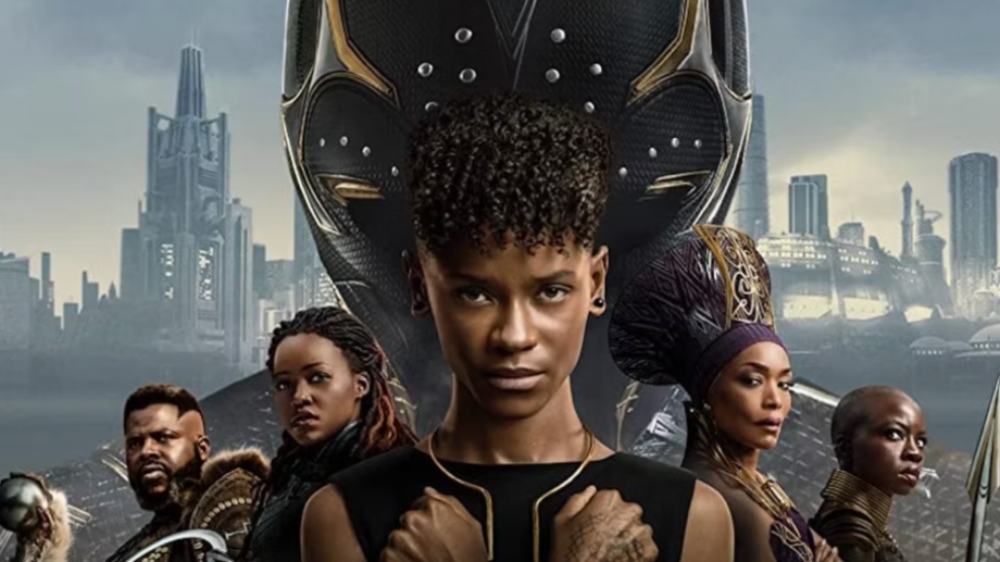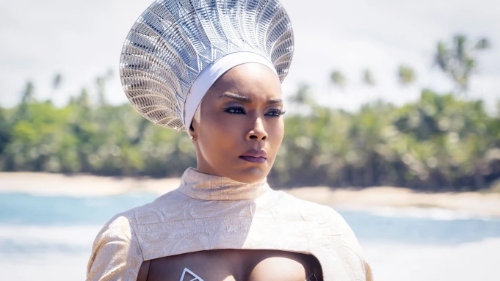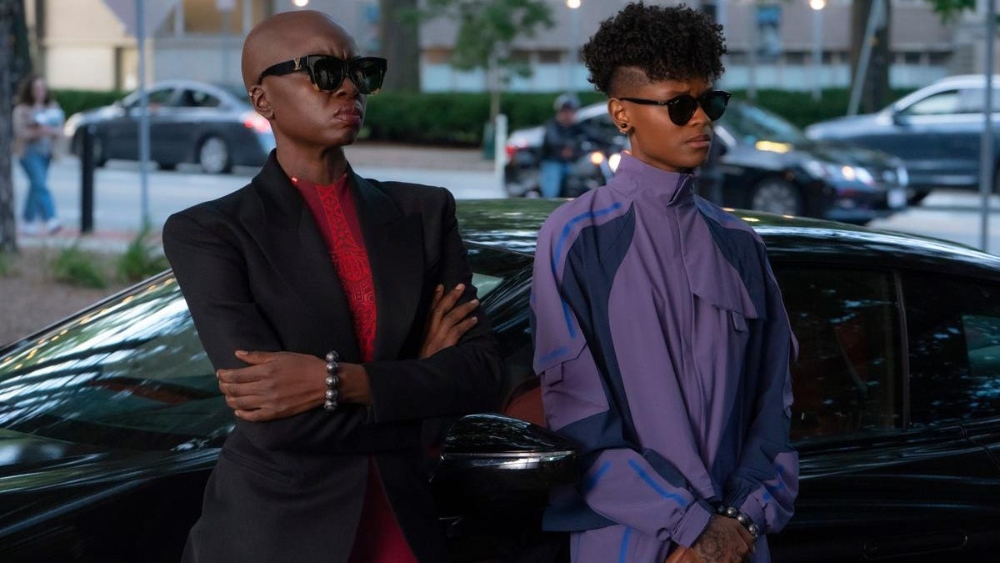
The bookending tributes to Chadwick Boseman in the sequel to his Oscar-winning film, Black Panther, are spectacular. It seems important to get that out of the way early in this review, and equally crucial that writer/director Ryan Coogler nail that critical facet of the film — which he did.
But Wakanda Forever, as the sequel is subtitled, does not purport to spend its bulky 160-minute runtime on mere homage to the tragically departed actor. Instead, it finds the mantle being passed and explores a bridge to a grander role for the Wakandans in the ever-expanding Marvel Cinematic Universe. In the end, though the movie features unimpeachable tech values and solid performances from a group of talented actresses, it is weighed down mightily by a story that is both incongruous and uninspired.
The fundamental plotline in Wakanda Forever is that our heroes in mourning find themselves at odds with a mysterious, powerful tribe of seafaring creatures from the nation of Talokan, led by Namor (Tenoch Huerta), a mysterious mutant who can fly, swim, and do pretty much everything in between. The Talokan appear to be sitting on a pile of “vibranium,” the rare earth mineral that makes the Wakandans so powerful but is also coveted by the imperialist forces of the regular world. When the Talokan themselves are targeted, they set out to exact revenge on the surface world, with Wakanda finding itself “caught in the crosshairs” — sort of. Wakanda’s current leader, Queen Ramonda (Angela Bassett), worries for her grieving daughter, Princess Shuri (Letitia Wright). She enlists spies and warriors played by a dazzling Lupita Nyong’o (showing off her perfect Spanish) and a fierce Danai Gurira, to try to protect Wakanda from the evil Talokans.

Coogler created these new characters by amalgamating a series of Mesoamerican people and legends. Talokan is presumably “Tlalocan,” an ancient city that in Aztec myth was sunk Atlantis-style by the Aztec god of rain, Tlaloc. Namor is very explicitly based on Kukulkan, who is a Mayan god (the Maya and the Aztecs shared little other than vaguely overlapping geographies and somewhat contemporaneous timelines). Kukulkan had his own complicated relationship with the Mayan god of rain, whose name is Chac. (This critic happens to have been born and raised in Yucatan, the land of the ancient Maya people.)
Setting aside the questionable decision of making villains out of a group with very little representation in Hollywood films, this plot is a giant wasted opportunity. The obvious narrative was for Coogler to examine the similarities between similarly oppressed or colonialized groups, a device that movies like, say, The Woman King employed to great effect. The original Black Panther was about a related theme — the different ways in which abused people react to and respond to such injustices. Kudos to Coogler for not repeating that theme in this film, but with no other theme in its place, there is a large, empty void left between the clashes of the Wakandan spears and the Talokan water bombs.
More doctrinal confusion infects the sequel Why is Namor so powerful — created from a vengeful act of Gods during the Spanish Conquest of Mesoamerica — and yet unable to vanquish the Conquistadores in their time? Ultimately, though, one can set aside historical or logical accuracy in favor of a compelling narrative that will make you want to see more of these characters. Here, though, the relationship between the two groups is ultimately predictable given their status, and presents no captivating storyline that makes you beg for more. (Though, of course, the studio is going to give you more, no matter what.)
On the bright side — literally — are Ruth Carter’s wonderful costumes. She won the Oscar for her designs in the first film and she should win again, as her work really stands out in the sequel, especially when we see Wakandan villagers just going about their day. The tech or gadget-driven costumes that evoke Iron Man are fine, but it is the incredibly different set of clothes that the Wakandans wear for different ceremonies and occasions that leap off the screen. Naturally, Carter called back to some of the clothes seen in the first movie, but the originality of some of the everyday garb here jumps out and is worthy of some extra attention.

Ludwig Goransson, who similarly nabbed an Academy Award for scoring the 2018 film, returns with a somewhat more muted score this time around, but his collaboration with Rihanna and Coogler on the heartfelt end credits song “Lift Me Up” could be his return ticket to the podium at the Dolby Theatre. Of course, the visual effects in Wakanda Forever are great, but given its extended running time, the movie doesn’t even feature that many fight sequences, and at times, the CGI you do see masks whether or not the action is taking place on one of Production Designer Hannah Bleacher‘s actual sets or merely in front of a green screen.
Also noteworthy are the strong performances from the entire ensemble, particularly Wright as she navigates pain, confusion, anger, and resilience. Gurira is given the “gruntier” of the roles, but she is particularly good at that, as we know from The Walking Dead, while Bassett plays the dignified matriarch very well. The strongest performances, however, come courtesy of Nyong’o, who has a relatively small role but steals the scenes she’s in, and newcomer Dominique Thorne, who plays a brilliant young scientist who’s the root of some of our heroes’ problems.
It’s not that the Black Panther franchise can’t succeed without Boseman, as good acting and strong production values save Wakanda Forever from being a total disaster, and it’s rather impressive how this sequel pivots from immortalizing male heroes to female ones, but the filmmakers will have to do better the next time around, as too many fundamental choices — such as the Talokan, who feel straight out of Avatar 2, which Disney is releasing just a few short weeks from now — are head-scratchers that don’t land, ultimately.
Though Marvel may want to consider a major reset in the third film — and this film’s mid-credits scene suggests they already are — Wakanda Forever feels like an appropriate title for this sequel, as a numbered title would’ve implied that this franchise was finite. However, we all know that the MCU is not finite. It is forever, and any resistance is simply futile, be it at sea or on the surface.
Grade: B-
Black Panther: Wakanda Forever hits theaters worldwide on Friday, Nov. 11, with sneak previews beginning Thursday night.





